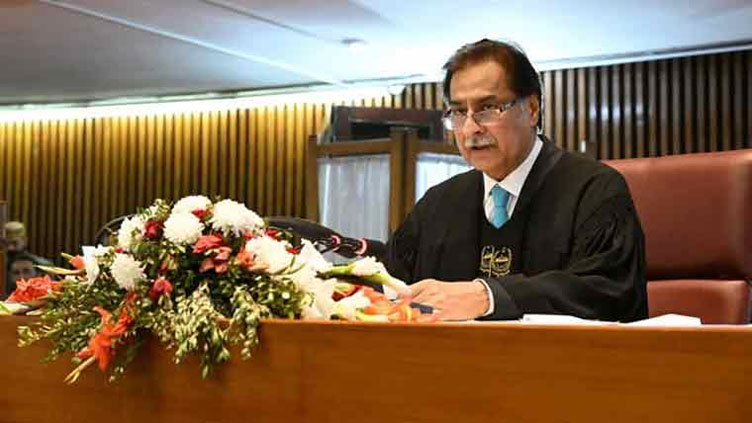On Sunday, Speaker of the National Assembly Sardar Ayaz Sadiq announced that he would not comply with the Supreme Court’s order regarding the reserved seats case, stating that he would await a decision from the Election Commission of Pakistan (ECP) before taking any action.
In an interview on Geo News’s program “Jirga with Saleem Safi,” Sadiq emphasized that the Supreme Court cannot challenge the recently passed 26th constitutional amendment, arguing that such an action would contradict the Constitution.
“It is the Election Commission’s responsibility to notify members,” he said. He expressed his view that if the assembly were to heed court orders, it could lead to complications, asserting, “We won’t act on the court’s order; we will wait for the ECP to notify us.”
In July, the Supreme Court ruled that the Pakistan Tehreek-e-Insaf (PTI) party was eligible for reserved seats for women and non-Muslims in the national and provincial assemblies, thus reviving its status as a parliamentary party. The court allowed PTI members to affiliate with other parties, including the Sunni Ittehad Council (SIC), after granting them a 15-day window to do so.
Sadiq criticized this decision, stating that had PTI candidates not joined the SIC, the situation would have been different. He argued that the court’s ruling essentially rewrote parts of the Constitution.
“Since we’ve amended the Constitution, they have even less authority to issue rulings,” he asserted.
Regarding the process of passing the 26th Amendment, Sadiq noted that it was a collaborative effort that encountered coordination issues, particularly with JUI-F chief Maulana Fazlur Rehman.
He praised the roles of Bilawal Bhutto-Zardari and Fazlur Rehman in achieving consensus, urging future collaboration between the government and opposition for improved legislative processes.
Sadiq also addressed the potential for future amendments, stating he was unaware of any upcoming proposals. He highlighted the global practice of parliamentary appointments for judges, questioning why parliaments cannot also appoint judges, given their role in creating and interpreting the Constitution.










